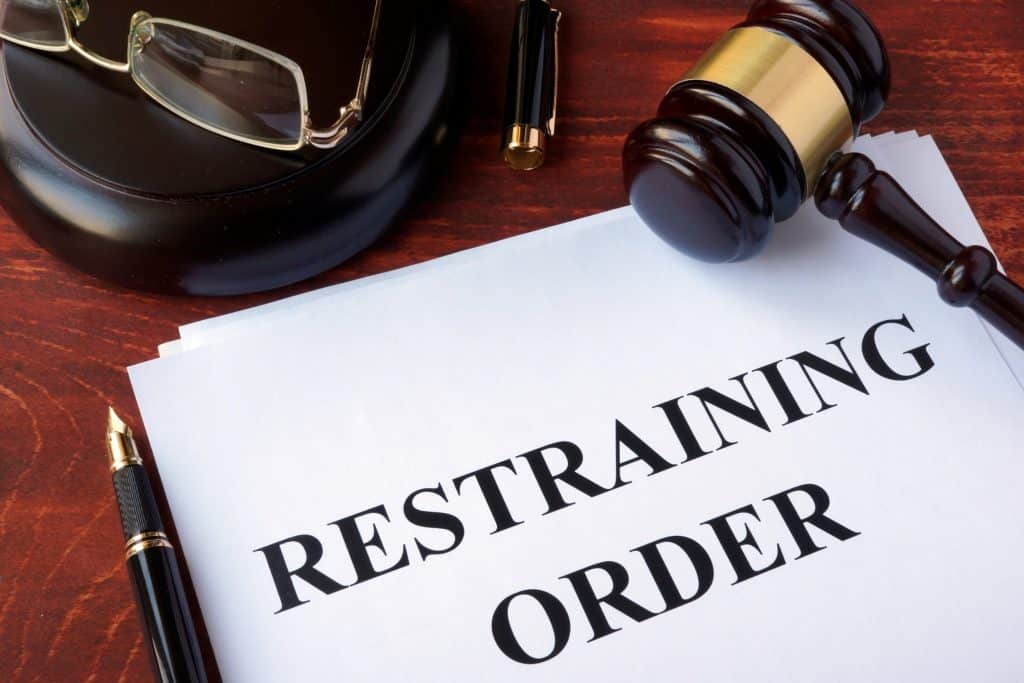Trying to navigate boundaries with your child’s birth mother can be difficult, but most of the same rules concerning normal boundaries apply: listen, be firm, and strive to respect one another.
In that regard, it’s barely any different from dealing with any other boundary situation.
Before you try to deal with the issue, consider the terms of the adoption first. Open adoptions deserve a little more leeway, but not if it comes at your own family’s expense. Reestablish boundaries so the birth mom knows the extent of her freedoms.
Don’t let them insult you or make demands, since their continued presence is a privilege, not a right. Lastly, if the birth mother continues overstepping boundaries consider filing a restraining order to protect your family.
It can feel awful establishing these boundaries, as you might feel that you’re separating a mom from her kid. She might still love them, but she did give them up for adoption. Remember that it’s your family and your kid being discussed, not hers – don’t let yourself be convinced otherwise.
Handling a Birth Mom Who’s Overstepping Boundaries
Open Adoption vs Closed Adoption

Open adoptions work by permitting the birth mother of the child being put up for adoption to remain in mediated contact with them.
Both the birth mother and adoptive family do this to provide what’s best for the child. This dynamic is governed by firm boundaries and a shared goal.
Open adoptions became more favorable in recent years as this arrangement helps the adopted child feel that they weren’t abandoned or unwanted. This assurance helps to mitigate potential separation anxiety or self-esteem issues they may have developed otherwise.
On the other hand, closed adoptions work by having the birth mother waive off not only their parenting rights but any level of presence in the adopted child’s life.
They can try to get in touch with the birth child after the latter reaches legal adult status, but until that point, they are for all intents and purposes a stranger to the child.
Why is that important?
A mother in a closed adoption won’t know their child nearly as well as a mother in an open adoption would. Birthing mother overstepping boundaries would threaten the adoptive family’s dynamic – especially because the mother previously claimed to have disentangled themselves from it.
Chances are that someone who changes their mind after agreeing to a closed adoption in the past doesn’t want to be part of the child’s life – rather, they want the child to be part of theirs!
It’d be like taking back a gift you got someone, to give a close analogy. It would not only be bad form but there wouldn’t even be a sensible basis for them to even make that demand of you!
An open adoption demonstrates that the birth mother still wanted to maintain a presence in the child’s life, even if it was only to be secondary in nature.
They made that stance clear from the get-go, and deserve the opportunity to maintain the arrangement – so long as they learn to respect their limits. As much as you can empathize with them, a birth mom overstepping boundaries is a serious problem you can’t afford to ignore.
Imagine reaching a point in your life where you couldn’t take care of your pet, so you had a friend take them off your hands.
Everyone in that situation knows you still care for the pet, and that it’s reasonable for you to visit, but they also recognize that the responsibility was formally passed on. You’d be allowed to care, but won’t be entitled to any say on how that pet is being raised.
Kids aren’t pets, but the principle still stands. You can’t fault the birth mother in an open adoption for continuing to care, but there’s a good reason why they’re being called the “birth mother” and not “the mother”. They decided that a long time ago – and it’s not a choice they can revert.
That said, the majority of adoption laws rule in favor of the adoptive parents – open adoptions aren’t even legally binding unless everyone goes out of their way to contractualize it!
Most people in the situation still choose to respect that arrangement for open adoptions. As we mentioned, this is usually done for the welfare of the child involved.
Birth mothers in closed adoptions don’t really know their child – they just want “their” child back. If they’ve kept out of touch until this point, chances are it’s entitlement driving them. They made their stance in the past clear, and entertaining their change of heart usually won’t end well.
Birth mothers who opted for open adoptions have a better idea of what they gave up. They surrendered their role as a mother, not their love for the child. They deserve a presence in the child’s life, and the kid deserves the reassurance that they weren’t abandoned or unwanted.
While birth mothers are rarely legally entitled to maintain contact, adoptive families provide it anyway (within reason) to grant both the birth mother and child peace of mind. They just aren’t entitled to making decisions on the child’s behalf – they gave that up a long ago.
This is a privilege and a kindness granted to them – and it’s one that can readily be revoked. If the birth mom continues to overstep boundaries, they’re disrespecting the arrangement. You don’t owe them anything if they refuse to work with what’s offered.
Reestablish Firm Boundaries for Contact

It’s easy to feel guilty taking this measure. You might feel like you’re telling a mom what they can and can’t do for their own child, but this separation is crucial for everyone’s well-being. They gave up on being the child’s mom in the past – that’s not a choice one can just undo now!
Remember that you aren’t separating a child from their family: you’re keeping someone from breaking your own family apart!
The more boundaries in place, the better. It’s not to restrict them but to clarify their freedoms.
For instance, allow the birthmother to schedule visits with the child – but make sure they run them by you first. Give them an expectation of time, duration, and frequency here. Let them know that this meeting together will be mediated by someone in the adoptive family.
A birth mother’s visitation opportunity is a privilege, not a right. Even open adoptions don’t assure that – all contact with the child moving forward comes at the adoptive family’s discretion.
It doesn’t matter that they birthed them – never let them feel entitled to your child’s presence. If they aren’t satisfied with the arrangement, try to work towards a compromise for your child’s sake.
That said, don’t ever buckle to any demands or ultimatums they set. They’re only allowed to have what your family is comfortable providing – a birth mom overstepping boundaries is a sign of a serious problem on your hands.
Don’t Let Them Insult You (But Respect Them in Kind)

If the birth mom is overstepping boundaries, chances are they feel the arrangement you have is constraining or otherwise unfair. There may be points where she lets this frustration slip, lashing out overtly or mumbling problematic thoughts to your child.
You might be tempted to cut them out from this alone, but you’re doing this for the sake of your child. Separating them from their birth mother is a last resort, and certainly not an option you’d take out of frustration! Try to figure out if the birth mom is trying to undermine your family.
Don’t complain about the situation to your child. Let your actions and compassion vindicate you. Trust your child’s judgment will be sound – they’ll be able to tell if their birth mom is being difficult or unfair so long as you don’t drag yourself down to their level.
If your child’s birth mom persists with this toxicity, you’re well within your rights to formally cut them out of your child’s life.
Don’t go out of your way to look for these reasons, as cutting them out isn’t a decision one should ever make lightly – it’ll affect your child, no matter the reason. Only entertain cutting them out of your child’s life if the alternative will be far worse for your kid.
File for a Restraining Order

Unfortunately, your efforts to cooperate with the birth mom may not go well. They might continue to push or demand things they aren’t entitled to, and you might in turn have to resort to legal deterrents to protect your family from this harassment.
It’s a difficult choice that’ll no doubt agonize the birth mother, but remember the following:
- You’re grateful for the child you got, but you don’t owe the birth mother for it.
- You tried your absolute best to be patient and seek out a compromise.
- You gave them every chance you could and had all of them refused.
- You are protecting your family with this – not destroying hers.
The birth mom’s presence was permitted in the past – it wasn’t obligated. It was done because their presence should better the child, but right now they are the farthest thing from a positive influence. It wasn’t an outcome anyone wanted, but they left you with little choice on the matter. The child’s birth mom is overstepping boundaries, not you!
You aren’t separating a mother from her child here but protecting your own family.
Don’t be ashamed of that.
Final Thoughts
It can be awkward, to say the least, when a birth mother is overstepping boundaries. You can’t fault them for caring for the child, but never forget that it’s your child here. Do your best to find an amenable compromise, but be ready to draw a firm line if their behavior gets out of hand.